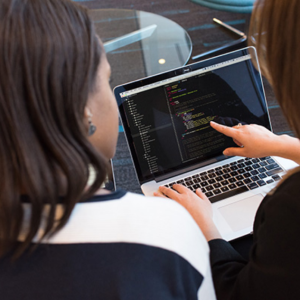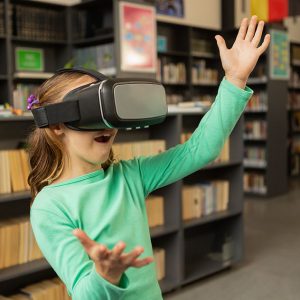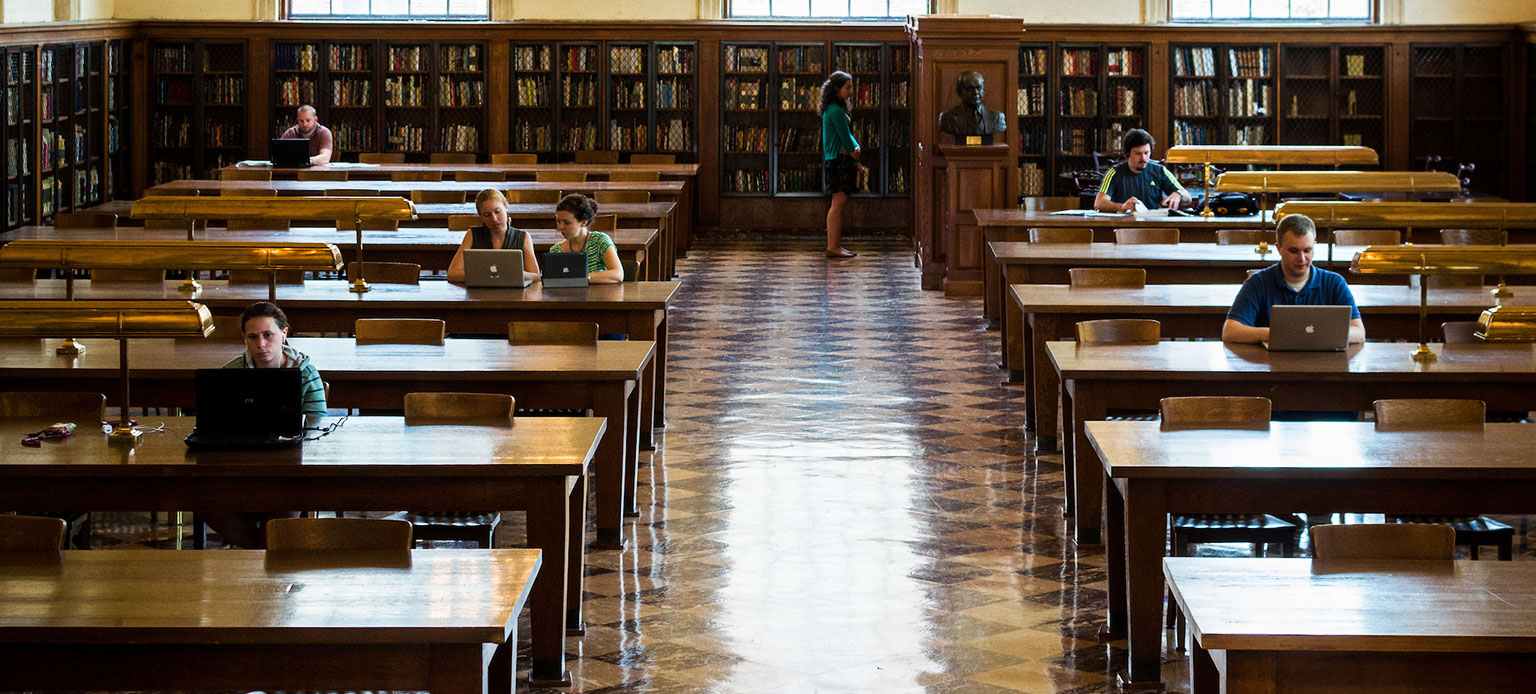Research
As a public university, research is one of the important ways the School of Information and Library Science (SILS) serves our state, our partners, and our profession. As a school, we have six primary research cores – areas where we have made an impact and increased the body of knowledge of a topic. Some of our current research labs conduct work in these core areas. Individual faculty members also pursue a wide range of research topics, which are featured on their individual pages within our faculty directory. SILS is known for its interdisciplinary approach, and faculty members often partner with colleagues from other departments and organizations. Research results are shared through published works, conference presentations and proceedings, special speaking engagements, symposia and other events.
Students in all programs have the opportunity to conduct research. They learn how to ask unique questions and pursue answers from faculty who are known throughout the world for their academic contributions.
Projects are funded by a variety of sources, including the Institute for Museum and Library Services (IMLS), the National Science Foundation (NSF), the National Institutes of Health (NIH), National Library of Medicine (NLM), and the Andrew W. Mellon Foundation.
Colleagues from other departments and organizations, as well as SILS students, work collaboratively with faculty on their research.
Core Strengths
Our faculty’s research and outreach have enabled the UNC School of Information and Library Science (SILS) to become a global leader in five specific areas:

Digital Curation
Digital curation involves selecting, maintaining, preserving, and adding value to digital content throughout its lifecycle. Libraries, archives, and museums have been actively involved with digital curation for decades, digitizing historical documents and preserving born-digital materials. Increasingly, businesses and government agencies are using digital curation practices to improve the quality and usability of their data and other digital assets. Successful digital curation mitigates digital obsolescence and data degradation, keeping information accessible to users indefinitely. Digital curation encompasses digital asset management, data curation, digital preservation, and electronic records management.
SILS faculty with expertise and interests related to digital curation:

Health Informatics
Health informatics refers to the optimal use of information, often aided by the application of technology, to improve individual health, health care, public health, and biomedical research. The UNC School of Information and Library Science (SILS) is a lead partner in the Carolina Health Informatics Program (CHIP). A truly interdisciplinary program, CHIP brings together faculty from public health, medicine, nursing, dentistry, pharmacy, information science, computer science, and other units across campus. Researchers examine numerous topics, from personal health information seeking behaviors, to wearable health technology, to data visualization for improving diagnoses and outcomes.
SILS faculty with expertise and interest related to health informatics:

Librarianship of the 21st Century
SILS faculty study how new technologies and evolving purposes create new challenges and opportunities for today’s libraries. In addition to sharing their findings with the academic community and their current students, faculty often develop programs that can help practicing librarians better meet their community or organization’s information and learning needs. From bridging the digital divide to creating more inclusive spaces, SILS faculty strive to find modern approaches to the traditional values of library science: universal access, collaboration, intellectual freedom, self-directed learning, organization, and stewardship.
SILS faculty with expertise and interest related to librarianship:

Social Informatics
SILS faculty study and teach about how humans, information, and technologies interact in institutional and social contexts. Social informatics is cross-disciplinary and considers the design and implementation of information technologies and their effects on individuals and groups.
SILS faculty with expertise and interest related to social informatics:

User Experience (UX) and Interaction Systems
In the digital age, humans encounter more information from more sources through more mediums than at any time in history. By better understanding how people seek, interpret, and use information, we can optimize new technology and create better systems and interfaces, which can lead to higher levels of prosperity and wellbeing around the globe. We must also critically examine the negative impact of the modern information ecosystem, including violations of personal privacy, the spread of misinformation and disinformation, and the risks of information overload.
SILS faculty with expertise and interest related to UX and user interaction systems:
Interactive Information Systems Lab

